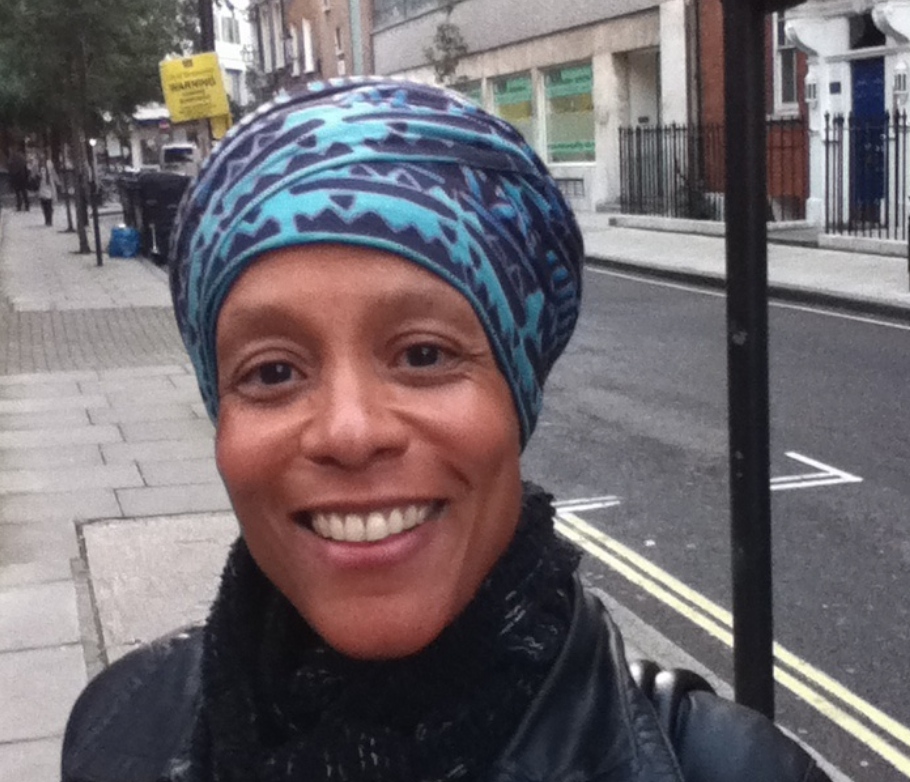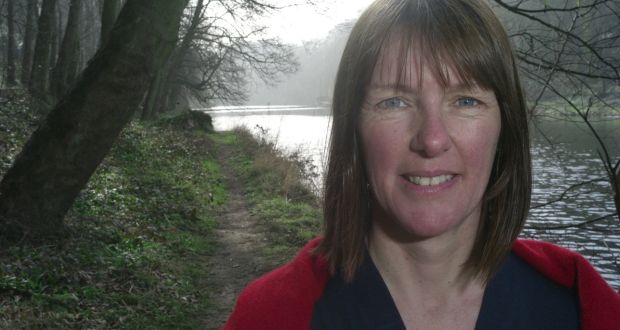
Jenny Mitchell
Bending Down to Worship
Church Mary said her God was in the ground,
not Satan but the things that grew, and flowers
were the gems upon His crown.
She made a garden all around her house –
a broken shack she called a palace
where she reigned.
You couldn’t step beyond her door unless
you brought her a bouquet, or something
green and pulsing full of life. She filled
each bowl and glass she found with blooms
she called her jewels, though they were better
as they gave a lovely scent.
She tended to her tiny Eden till the flowers
reached above her head – the colours bold
against dark skin, so filled with shining light.
Her headwraps were like floral wreaths,
and every dress was made of faded flowers,
the age-old shoes like clumps of mud.
The days when she was forced to work out in the
fields she feared the sun might scorch her garden.
She left the cane the moment that the whistle blew
and went to fetch pure water from the stream.
Her flowers had to live as they
were all the freedom that she knew.
On nights when she was grieving she went
outside to kneel amongst the plants
and bend her head to talk to God.
He answered back by showing her another
rock or stone she had to move, revealing yet
more ground on which to grow more buds.
One Sunday as the white priest tried to make her
go to church, she offered him her shining patch
of land with one sweep of her arm. She said:
‘I never saw your Jesus but when I die
I’ll end up in the ground to feed the things I love
to grow, and that is all the heaven I will need.’
He damned her as a Godless slave; but when he left,
she heard the voice of God again. He spoke to her
of flowers as she bent to ornament His crown.
China a pregare
Church Mary diceva che il suo Dio era nella terra,
non Satana ma le cose che crescono, e i fiori
erano le gemme della Sua corona.
Fece un giardino tutt’intorno a casa –
una baracca sbilenca che chiamava palazzo
dove lei regnava.
Non potevi oltrepassare la soglia se
non le portavi un bouquet, o qualcosa
di verde, e pulsante di vita. Riempiva
ogni ciotola e bicchiere di fiori,
i suoi gioielli, diceva, e perfino migliori
perché avevano un buon profumo.
Curava il suo minuscolo Eden finché i fiori
non la superavano in altezza – colori sgargianti
contro la pelle scura, che splendeva di luce.
Le sue acconciature erano come corone floreali,
ogni abito fatto di fiori sbiaditi,
le scarpe decrepite come blocchi di fango.
I giorni in cui era costretta a lavorare nei campi
temeva che il sole le bruciasse il giardino.
Al primo fischio lasciava la piantagione di canna
e andava al ruscello a prendere acqua fresca.
I suoi fiori dovevano vivere perché
erano tutta la libertà che lei conosceva.
Le sere in cui era triste usciva
a inginocchiarsi tra le piante
e chinava la testa per parlare a Dio.
Lui le rispondeva indicandole un’altra
roccia o un sasso da rimuovere, scoprendo
ancor più terra per coltivar germogli.
Una domenica, quando il prete bianco cercò
di farla andare in chiesa, con un ampio gesto del braccio
lei gli mostrò il suo radioso orticello, e disse:
“Il suo Gesù io non l’ho mai visto ma quando muoio
finirò nella terra a nutrire le cose che amo
coltivare, e quello è tutto il paradiso che mi serve”.
Schiava miscredente, la maledisse lui; ma quando
se ne andò lei udì di nuovo la voce di Dio. Le parlava
di fiori mentre lei si chinava a ornare la Sua corona. Continua a leggere





